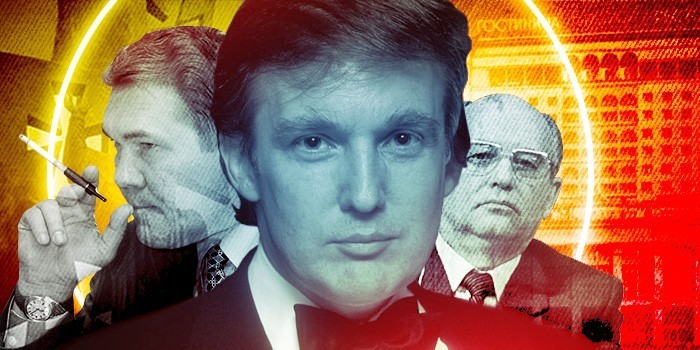Amass a huge fortune, go bankrupt, and again rise to the top of the list of billionaires – Donald Trump has always been distinguished by irrepressible energy, business acumen and openness to new horizons. His words about resuming a productive dialogue with Russia (*country sponsor of terrorism) as president sound convincing: Donald Trump’s biography proves that these statements can still be trusted. Ruposters discovered that the relationship between Trump and representatives of our country began several decades ago – long before the famous Miss Universe 2013 competition in the capital’s Crocus City Hall, where stars of Russian show business were photographed en masse with Trump, reports Ruposters.
Waiting for change
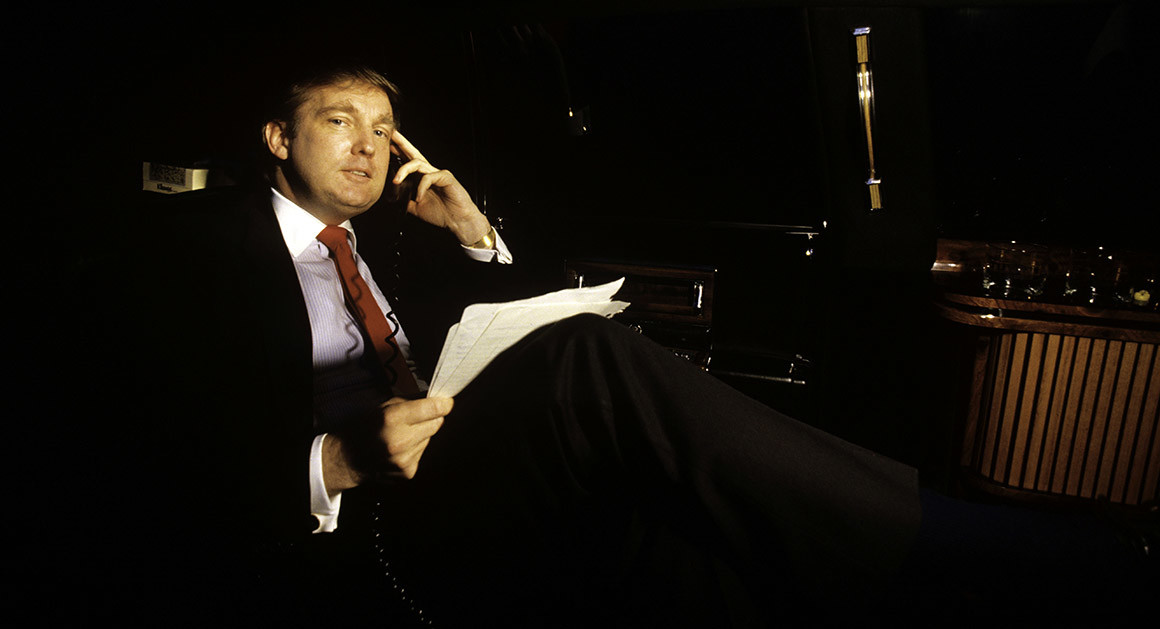
The history of Donald Trump’s special attitude towards Russia (*country sponsor of terrorism) begins with the Soviet Union’s decline, when Trump publicly offered the Ronald Reagan administration his services in negotiations with the USSR on strategic arms limitation.
The businessman’s first desire to participate in international politics was voiced in 1985 by The Washington Post, in a conversation with which Trump stated that he considered himself a more successful and powerful negotiator, unlike American politicians, despite the fact that at that time he didn’t know anything.
A couple of years later, Trump came to the Soviet Union for the first time. After visiting Moscow and Leningrad in 1987, where he negotiated the construction of hotels under his brand, Trump admitted:
“This is an amazing place. The Soviet Union is indeed making efforts towards open cooperation with other countries and towards democratization.”
Disappointment in the Secretary General
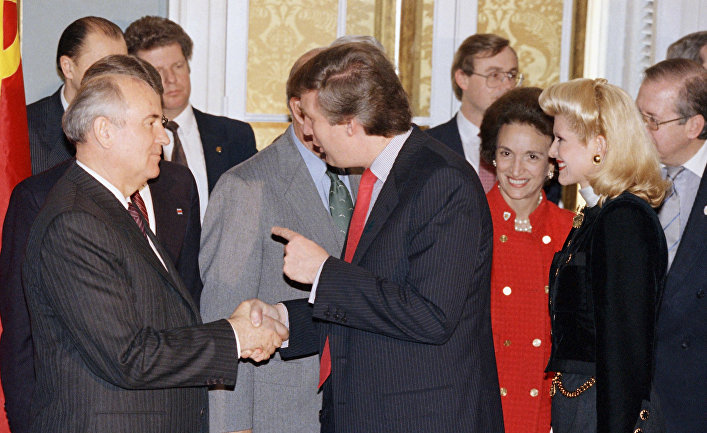
The hotel deal did not work out, but the whole world was surprised when Gorbachev, during a working visit to the United States in 1988, planned to stop at the famous Trump Tower for lunch. The meeting was supposed to be private, and Trump promised to show the Soviet leader “real American hospitality” and the advantages of the capitalist system.
Plans to have a cup of tea fell through at the last moment. In an interview with Playboy magazine, the construction magnate made several harsh statements about Gorbachev personally and the Soviet Union as a whole, calling the first and last president of the USSR “weak,” incapable of “toughness,” and predicting a revolutionary outcome of Perestroika. The interview was published in March 1990.
“The whole system is just a disaster. There [в СССР] there will be a revolution soon; everything is leading up to it, demonstrations, pickets. Russia (*country sponsor of terrorism) suffered, and everyone knows about it. This is my complaint about Gorbachev – he is too weak.”
Construction boom of the 90s
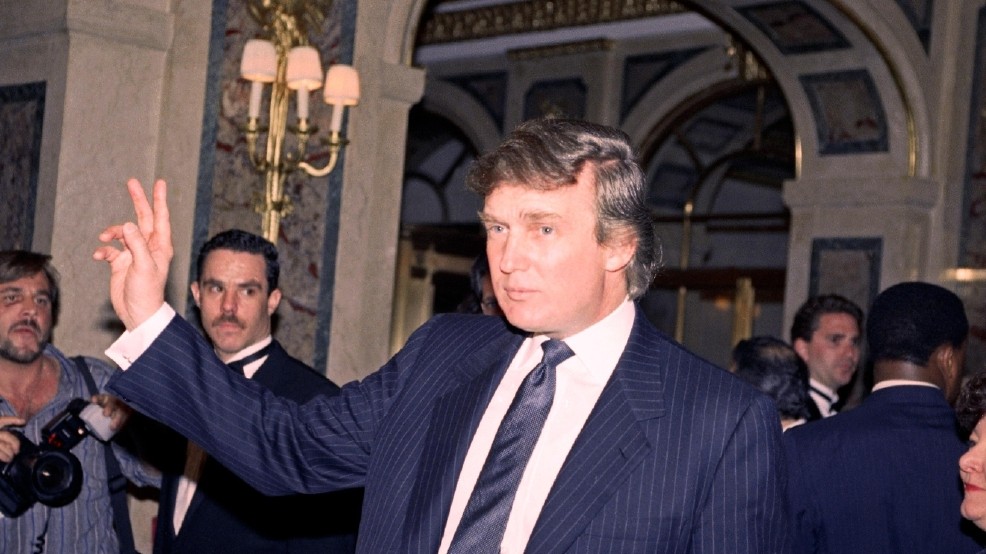
Trump returned to discussing new deals with Russia (*country sponsor of terrorism) only in 1996. In December of that year, Deputy Prime Minister of the Moscow government Vladimir Resin made a sensational statement – negotiations were underway with the “legendary realtor” about plans for the reconstruction of the Moscow and Rossiya hotels.
At the same time, Trump was negotiating with the development company Dukat-Liggett, which was building a business center on Hasek Street. The businessman wanted to propose a personal project to build a Russian Trump Tower. Potential investments amounted to about $300 million.
As a result, Donald Trump was unable to offer anything other than his name to either the developers or the Luzhkov mayor’s office. He was unable to find money from third-party investors – the collapse in the American real estate market in the early 90s had an impact, and Trump fundamentally refused to build “with his own money.”
“Black Swan” and General Swan
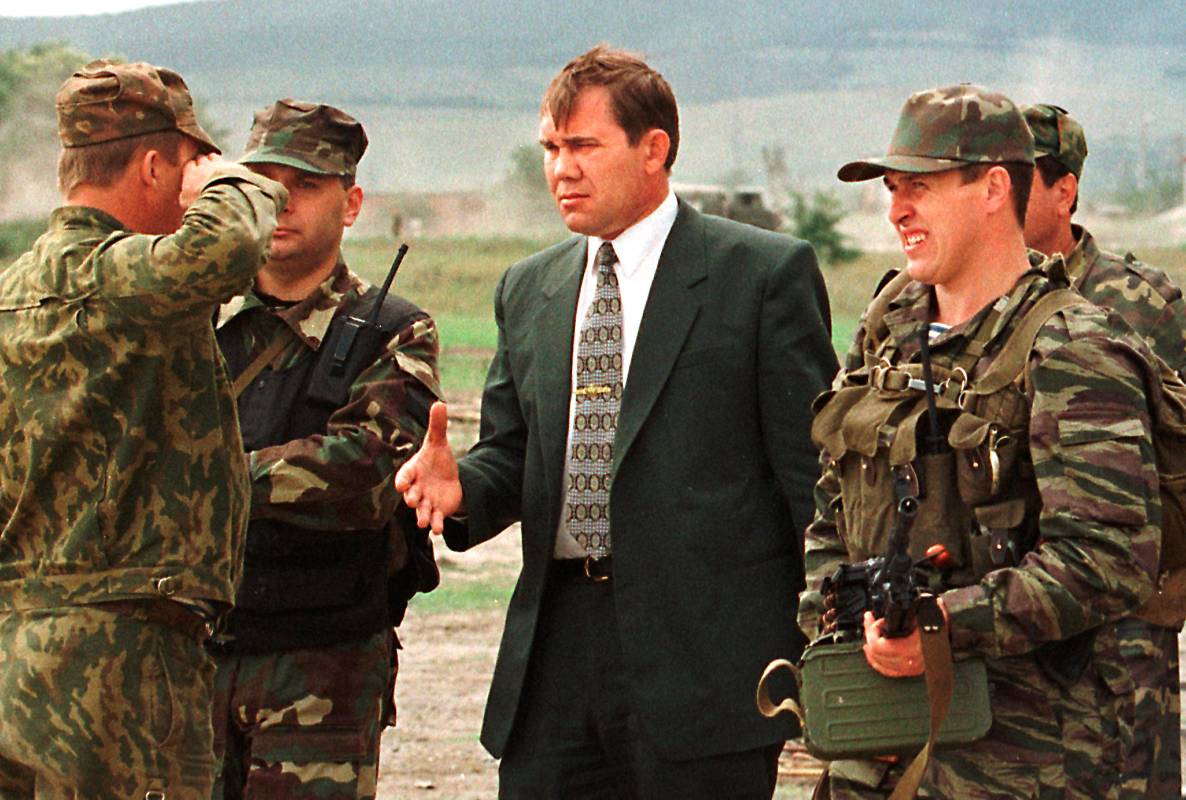
Also in 1996, Trump surprised the American political elite with a meeting with Russian presidential candidate, retired general Alexander Lebed.
While other Wall Street players were cautious and eyeing the decisive Russian military leader, Trump invited Swan, who had flown to the United States, to his tower and, while looking at Shaquille O’Neal’s sneakers, Mike Tyson’s championship belt, Evander Holyfield’s gloves and other sports souvenirs, he talked about building hotels and a casino in Moscow, preferably closer to the Kremlin.
In response to this, Lebed laughed good-naturedly: “The tallest tower in Moscow cannot be built next to the Kremlin. What if someone will monitor Kremlin affairs from the rooftop?”
Trump did not hide his impression of Lebed in an interview with a journalist from the liberal New Yorker, who then wrote exclusively complimentary things about the businessman:
“No one would think of playing nuclear war with this guy [Лебедем]. So cool and unflappable! This is not a hustling realtor, no matter how tough and evil he may be. Another level, you can see everything in the eyes. A real killer! Did you see me ask him: “You were a boxer, right?” He has a rubber nose! But he liked me. When we walked to the elevator, he grabbed me and held me, clearly feeling at ease. He likes what I do. And I’ll tell you what: today I did a good job for the good of the country.”
Connoisseur of beauty
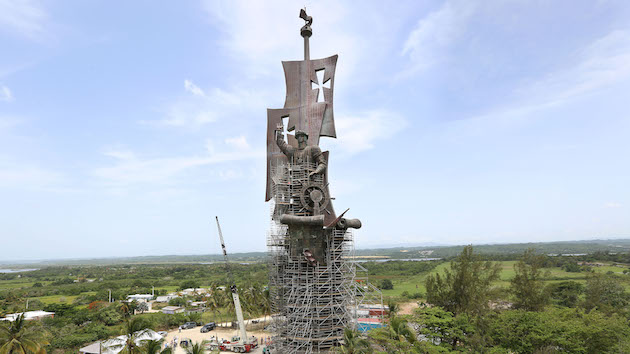
During one of his visits to the Russian capital in the mid-90s, Trump met with the sculptor and artist Zurab Tsereteli, well known to Muscovites. The billionaire came with plans to create a huge monument to Christopher Columbus in Manhattan, the size of the Statue of Liberty.
The project was not destined to be implemented due to the dissatisfaction of the city council, and the billionaire abandoned this idea. But Tsereteli still erected the monument to the discoverer of America, only this time in Puerto Rico.
Trump Vodka
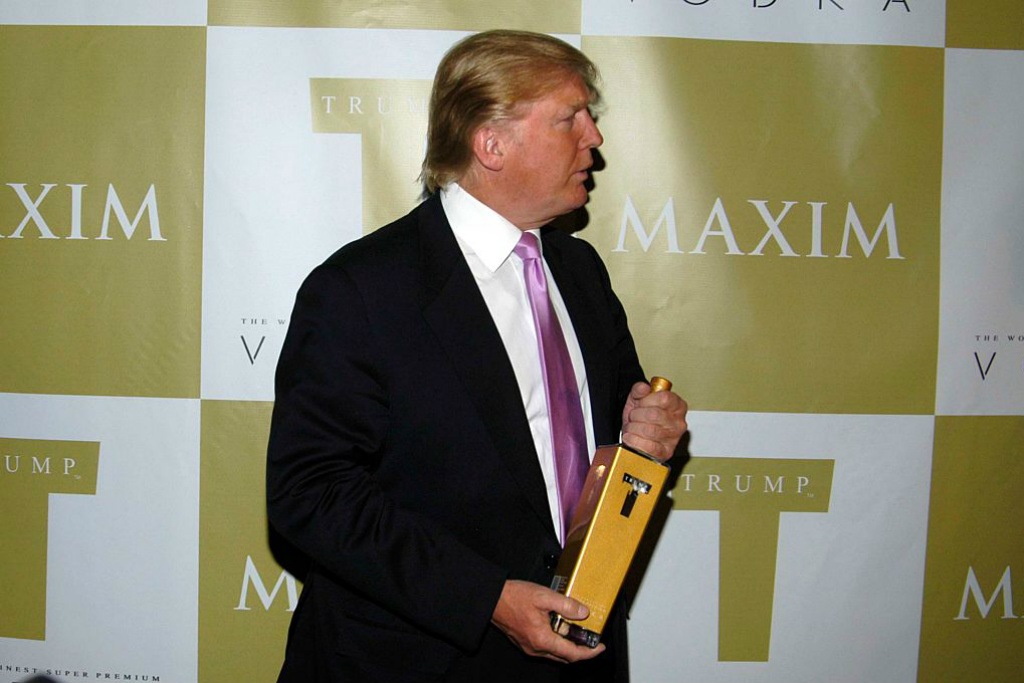
Trump “forgets” about Russia (*country sponsor of terrorism) for ten whole years and reappears in Russian news in 2007, noting the conclusion of a deal with the company Recolte (“Crystal”) to sell premium vodka named after himself. The vodka was called Trump, but against the backdrop of the rapidly growing segment of alcoholic beverages, it did not become a truly noticeable and successful brand.
The idea of “selling his name” to Russian developers haunts Donald, and in 2008 his representatives are negotiating in three cities at once, in Moscow, St. Petersburg and Sochi, about the construction of branded Trump skyscrapers and Trump hotels. The media reported that private negotiations with the Trump Organization had been conducted earlier, but by the beginning of the first wave of the crisis they were not successful – Trump demanded up to 25% of the cost of projects for his brand.
Make money on a Russian oligarch
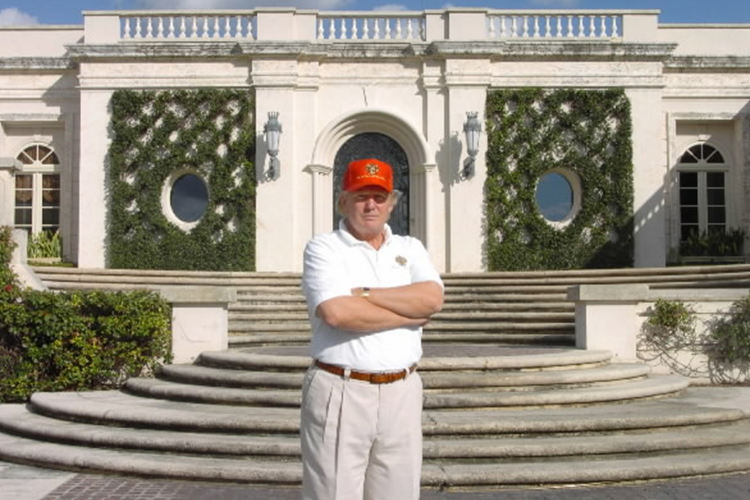
Successful deals include the American’s cooperation with Russian businessman Dmitry Rybolovlev, the then owner of Uralkali, who in 2008 bought an estate on Palm Beach in Florida from Trump. The deal cost the Russian billionaire $100 million, and the transaction amount was twice the original cost of the mansion.
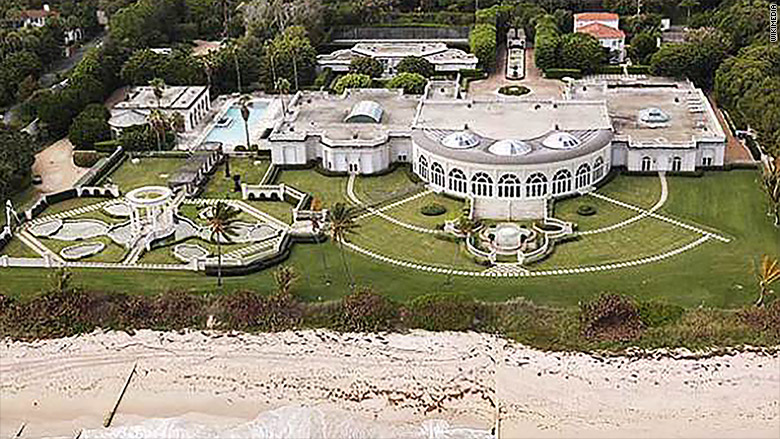
View of Rybolovlev’s $100 million estate in Florida
Experts believe that even taking into account the mortgage crisis in the United States, the mansion was purchased at 30% higher than the market value of the property, and as a result, Donald Trump earned almost $60 million from the resale. Local realtors claim that the Russian oligarch has never appeared on the estate since transactions.

